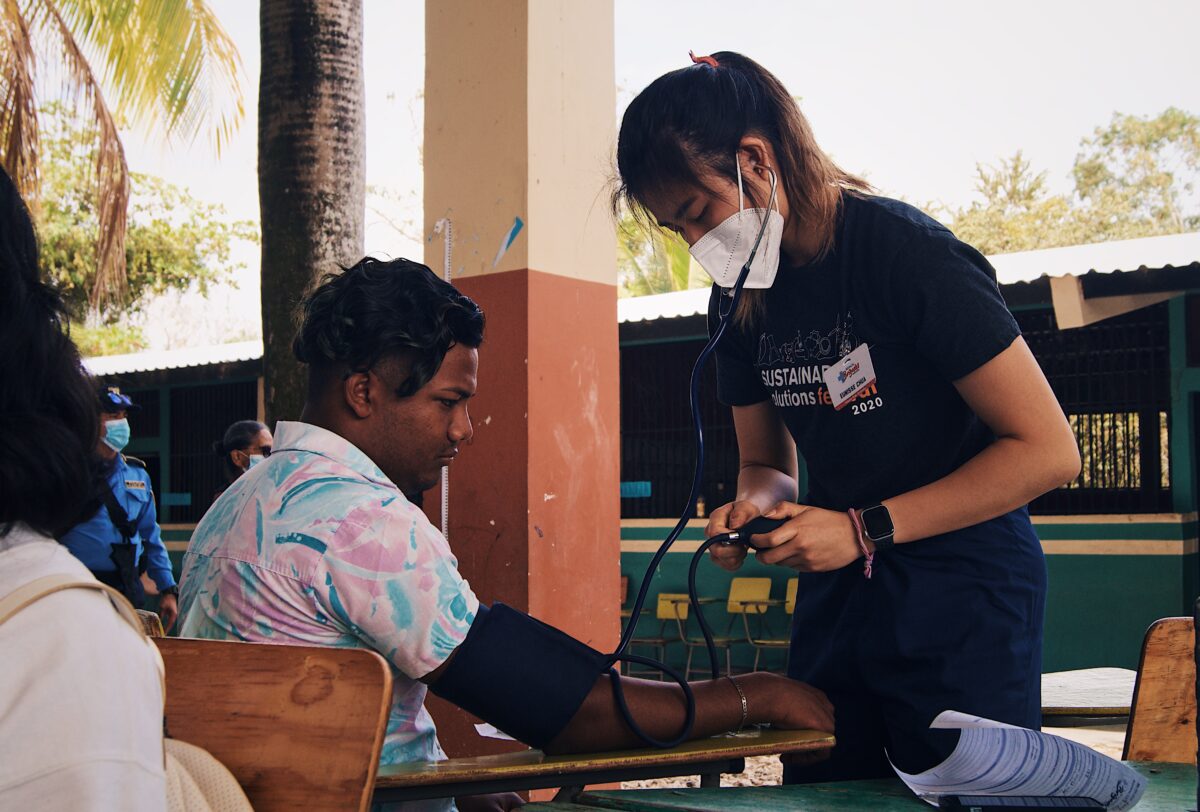
Global Medical Brigades 1 is an international movement of students and medical professionals working alongside local communities and staff to implement sustainable health systems.
We work in under-resourced communities in Honduras, Panama, Guatemala, Ghana, Belize, and Greece who would otherwise have limited to no access to health care.
Medical Brigades are 7 to 9-day trips that support our sustainable in-country medical clinics. We provide students the ability to observe and participate in medical care at our rural mobile clinics.

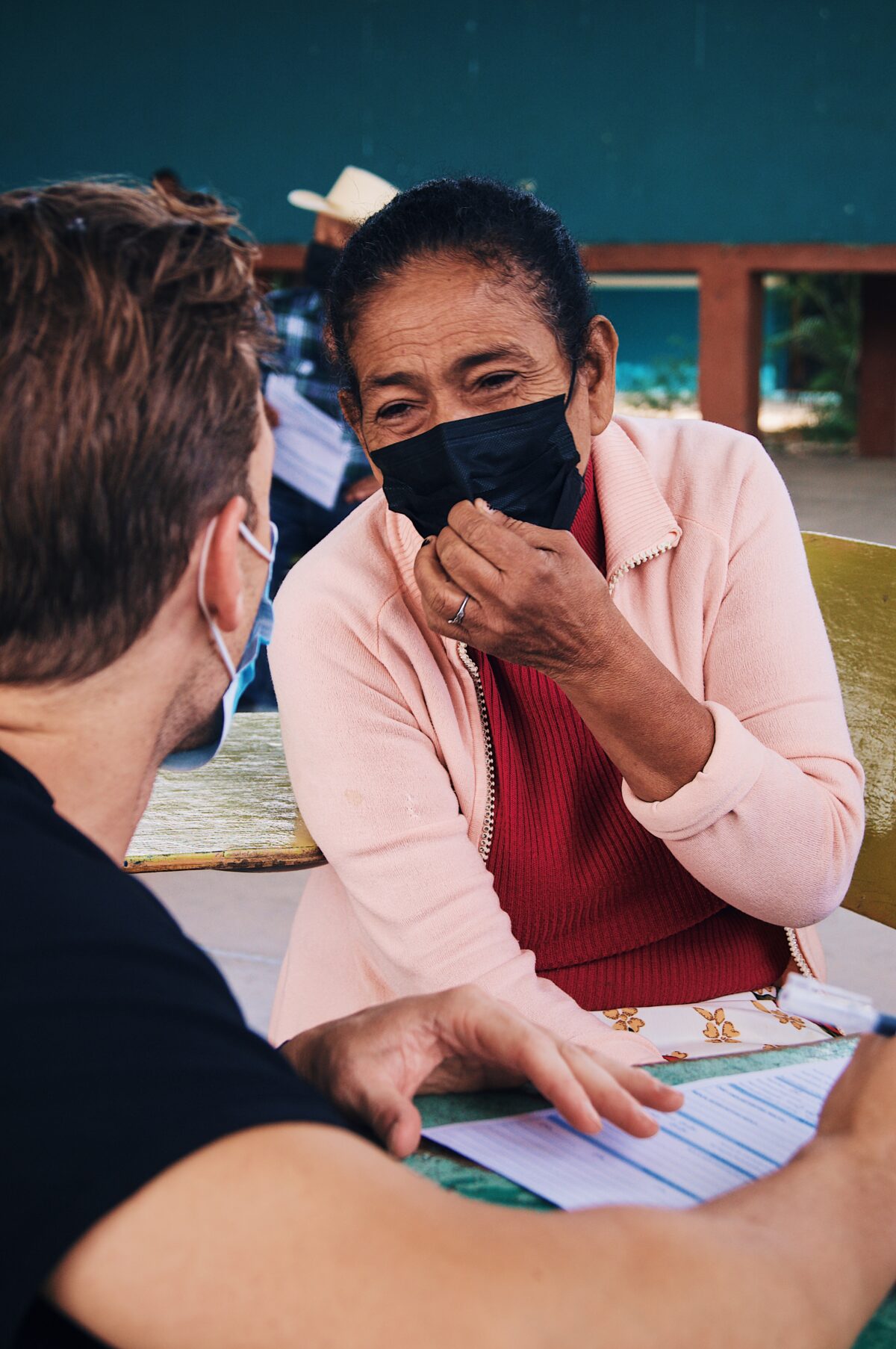
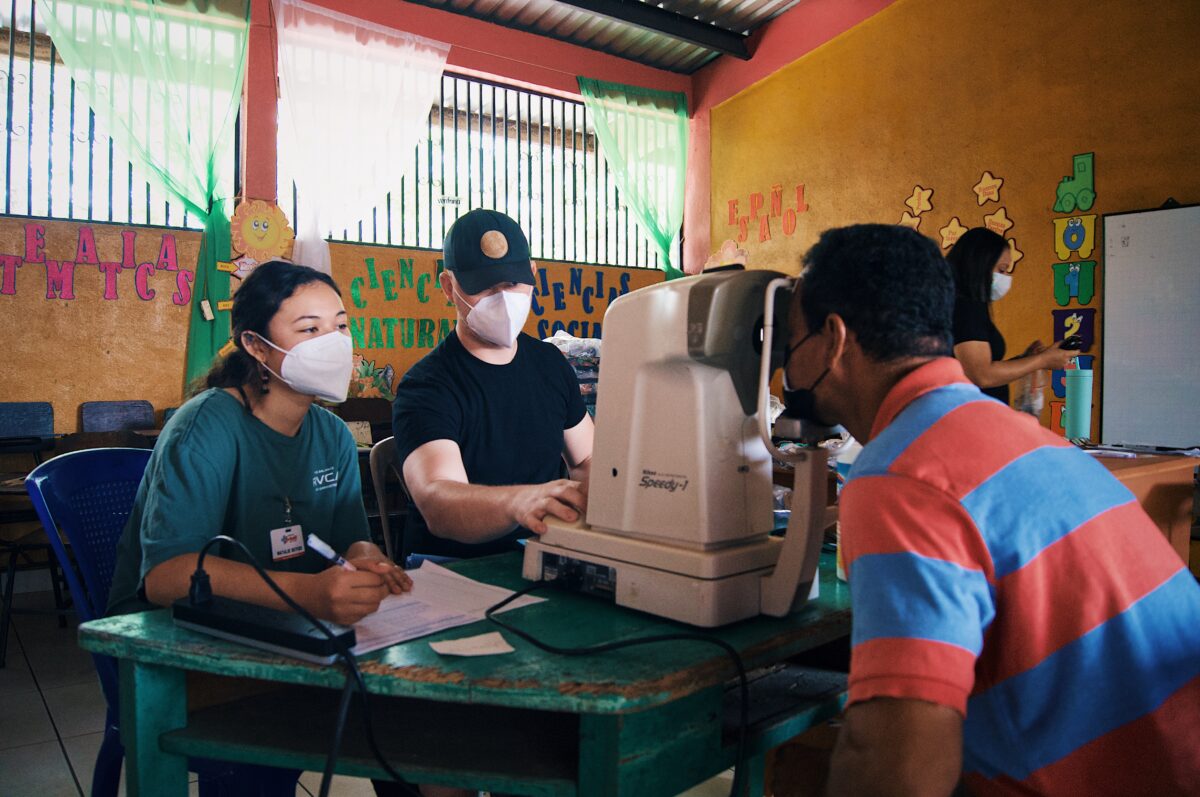
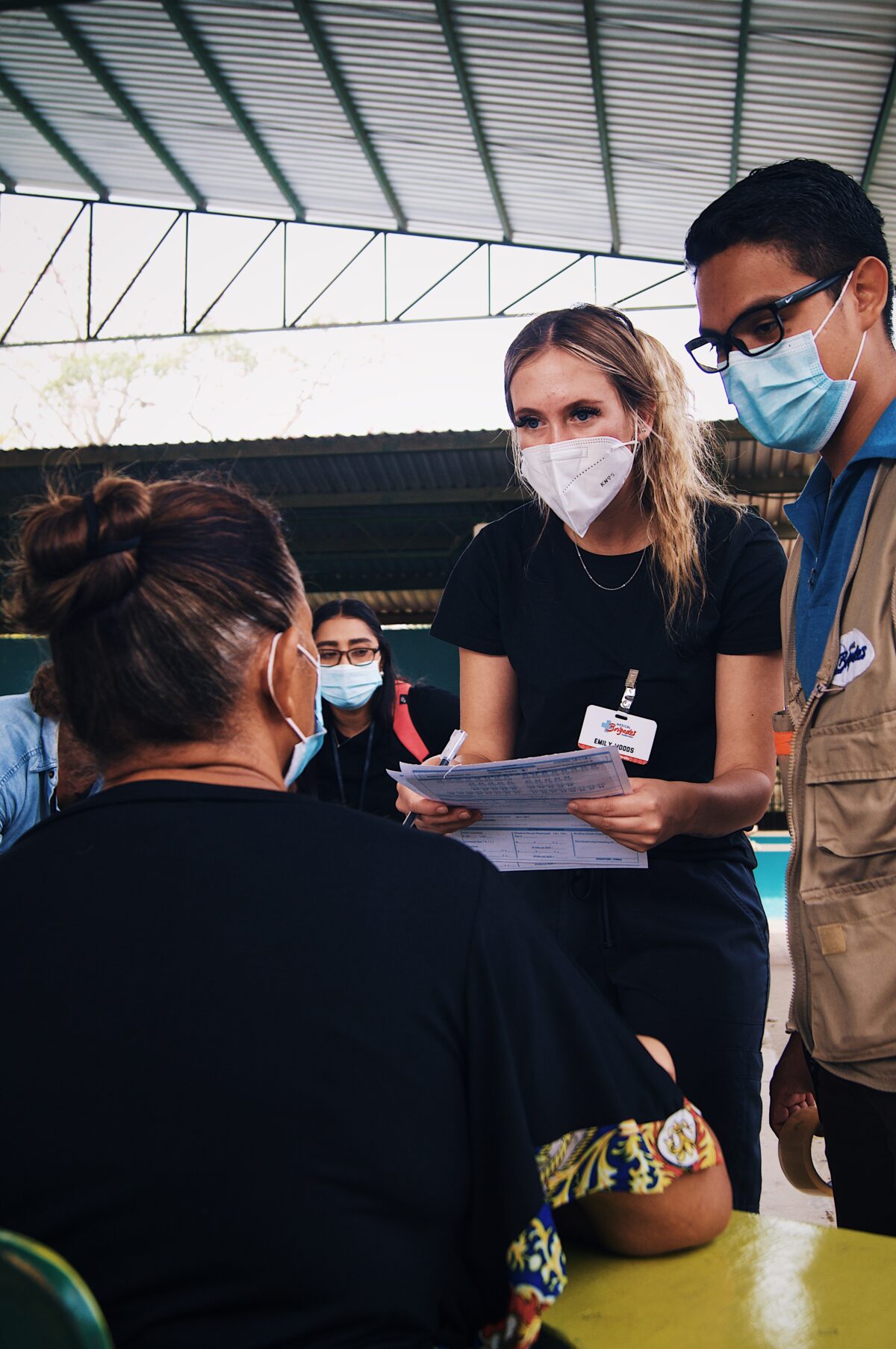

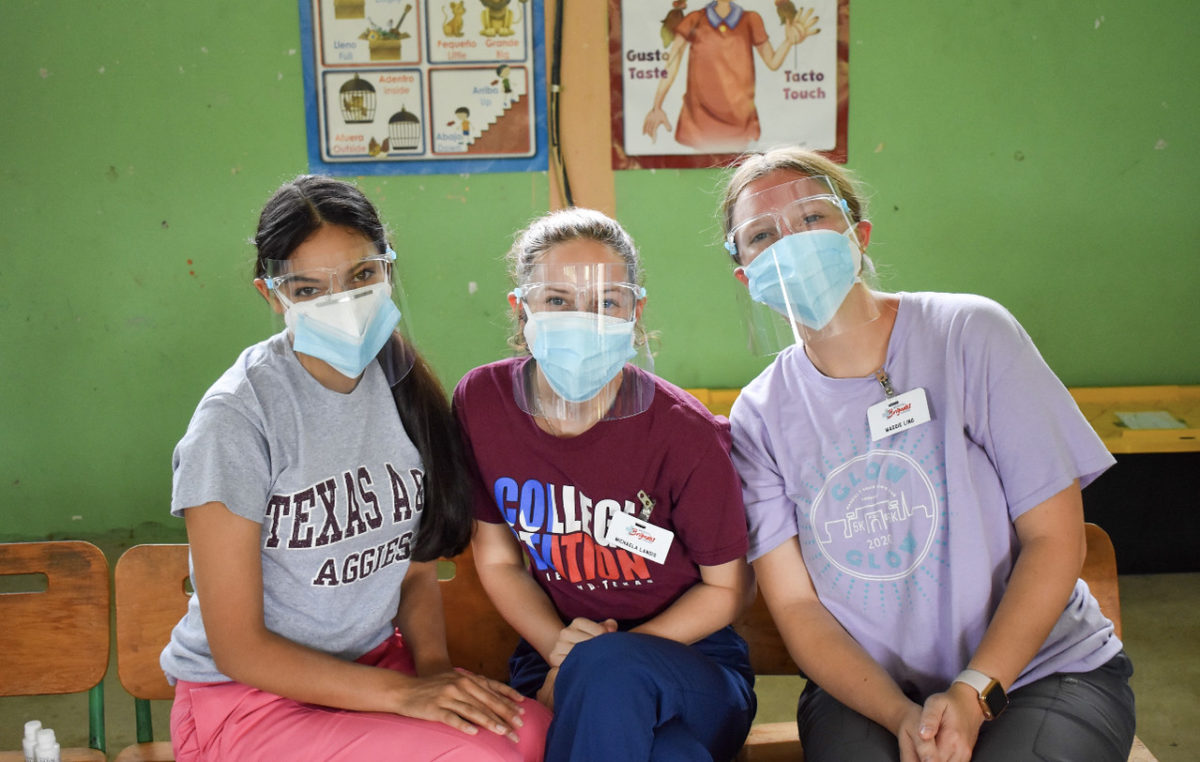
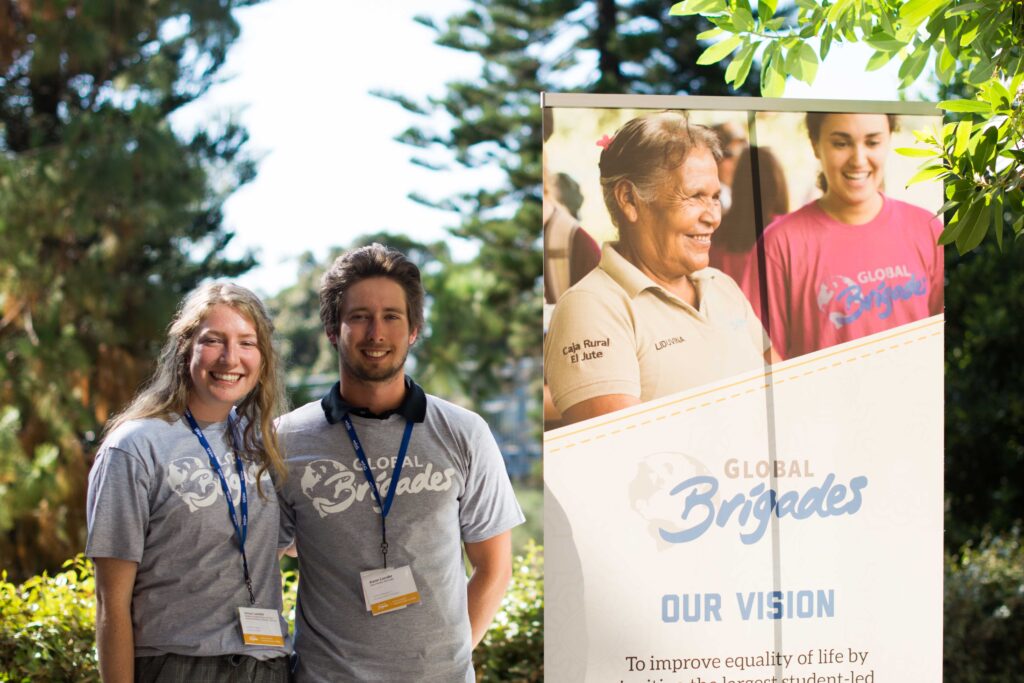 Global Medical Brigades volunteer programs" width="1024" height="683" />
Global Medical Brigades volunteer programs" width="1024" height="683" />
Pre-med student volunteers work with on-site community health workers to empower community members with sustainable public health clinics.
We offer students at universities across the US, UK, and Canada the chance to participate in our sustainable development efforts. As students prepare for health professions careers, they’ll work with in-country staff to help our partner communities reach their health and economic goals.
Chapter Presidents also get unique opportunities to develop leadership and other skills vital for a future medical career. Students who volunteer as Chapter Presidents will spearhead initiatives on their campuses from fundraising to organizing regular meetings.
Find out if your school has an existing chapter on our University Map.
Dr. Duffy Casey
Participate in 7-9 day Medical Brigades to Honduras, Guatemala, Panama, Ghana, and Greece. Volunteers support licensed health care providers in rural mobile clinics.
Join the largest student-led movement for global health as a Medical TeleBrigades volunteer by bringing healthcare to rural communities in Honduras.
We’re one part of a holistic model to support empowered communities to permanently rise out of poverty.
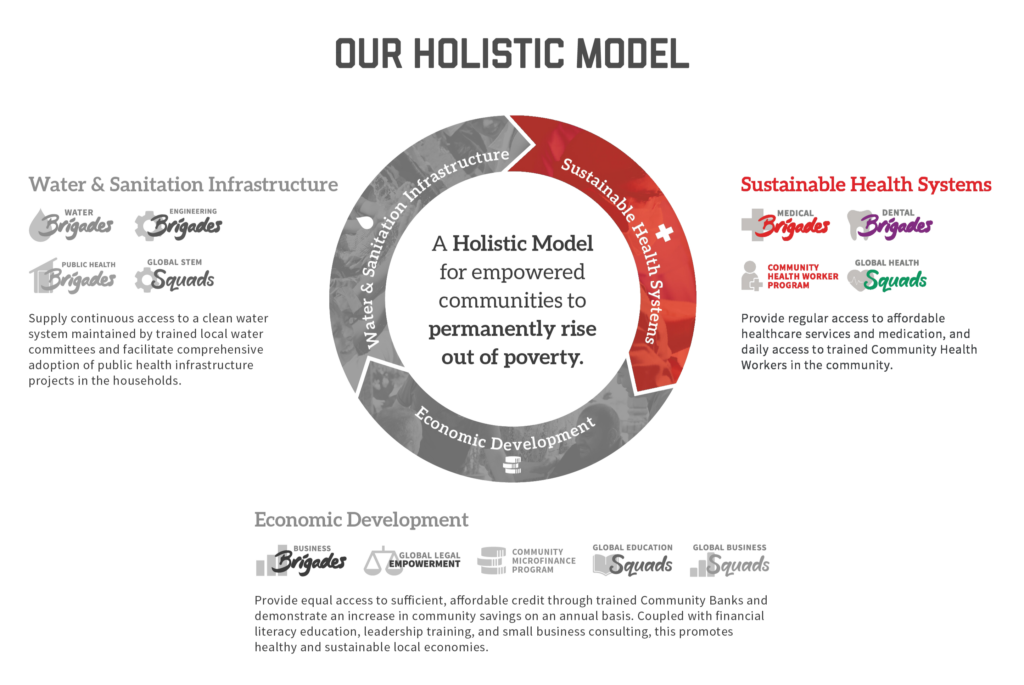 Global Medical Brigades" width="1024" height="685" />
Global Medical Brigades" width="1024" height="685" />
Our aim is to provide regular access to affordable healthcare services and medication and daily access to trained Community Health Workers in underserved communities.
In addition to sustainable healthcare, programs sponsored by Global Brigades seek to support underserved communities by developing WASH infrastructure and economic development efforts.
Our mission is to inspire, mobilize, and collaborate with communities to achieve their own health and economic goals.
Global Brigades’ Holistic Model and Empowered 300 initiative are aligned with the United Nations’ 2030 Agenda for Sustainable Development and Sustainable Development Goals.
Volunteers are a critical engine behind GB’s holistic model, which goes beyond access to healthcare to address the root causes of a cycle of poverty.
GB’s water & sanitation and economic development programs, along with year-round health interventions, have been recognized and rewarded by the most established names in sustainable development, including the UNDP, World Bank, Red Cross, and many more.

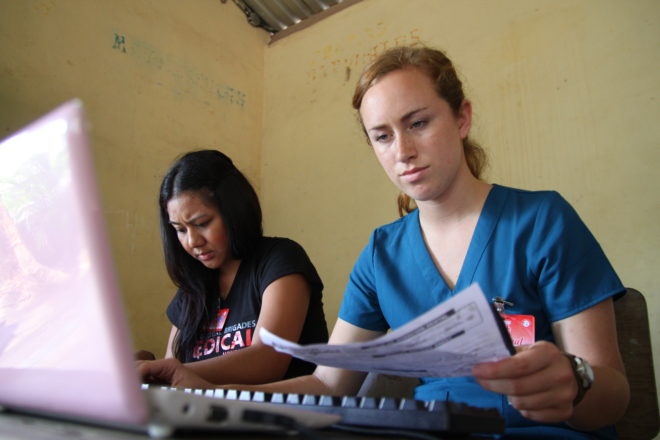
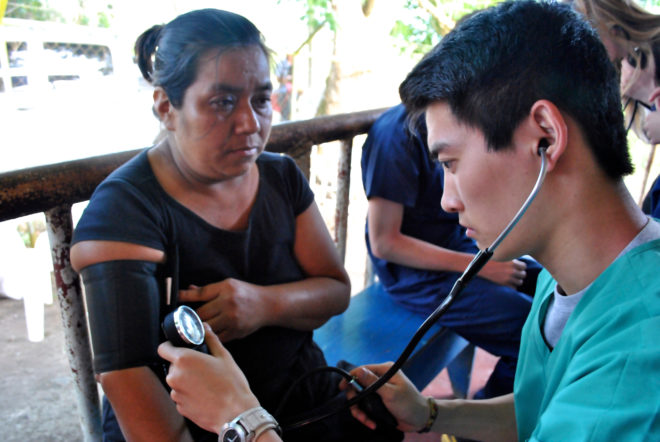
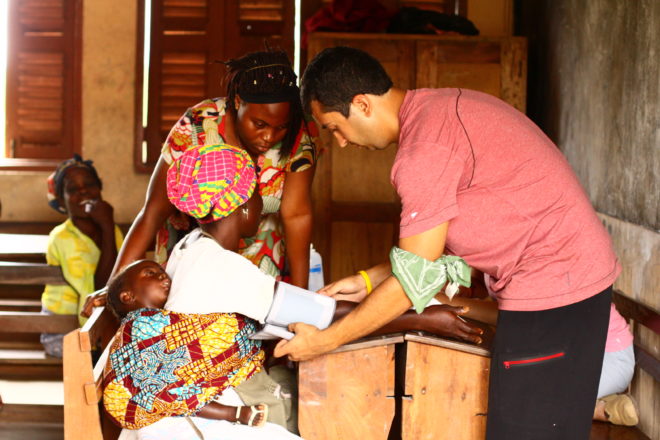
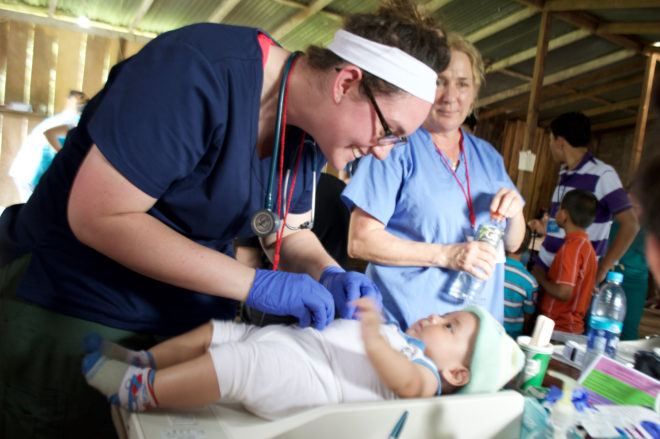
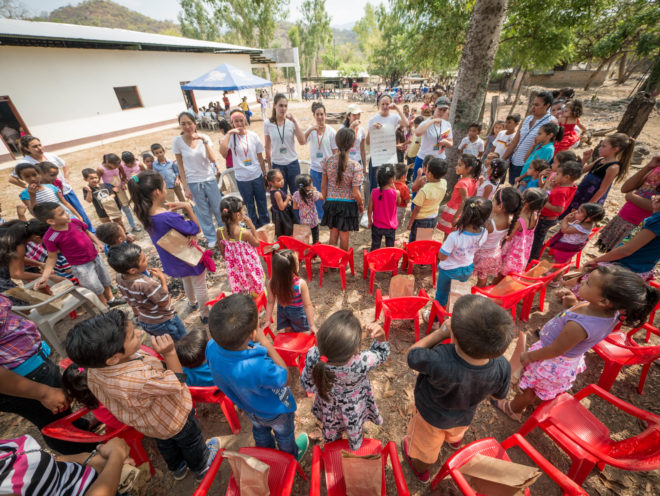
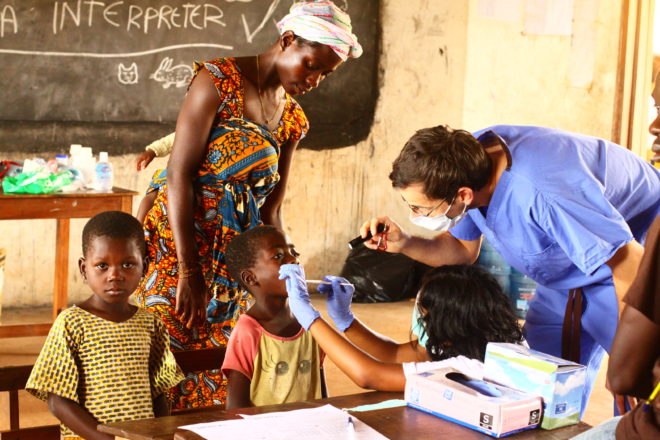
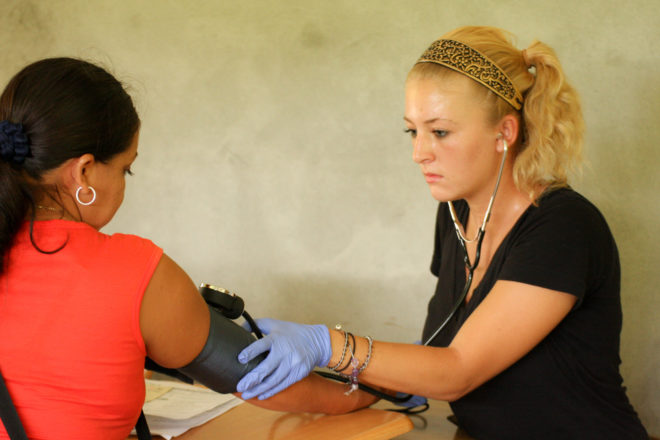
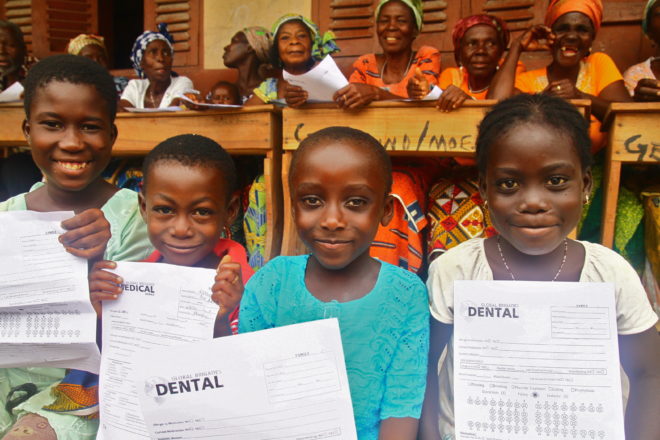
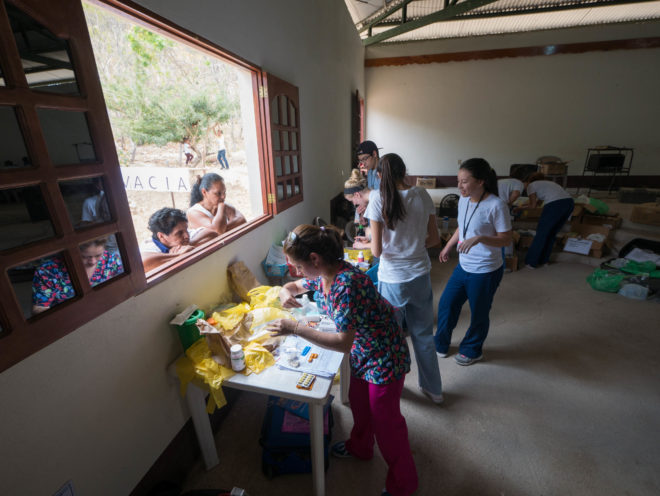
What amazes me too is how holistic Global Brigades is. Each day of the brigade had a Medical, Dental, and Gynecology component in it. Patients attended a community charla (workshop) that educates them about key health practices. We were able to suture a patient whose left hand got caught in between his horse and a fence. The brigaders also provided Dental Education and fluoride treatment to over 30 children during our Pilot Day. Truly, Global Brigades empowered us to provide medical and dental services even in the most remote locations.
Yes, there is so much more that needs to be done. But we will do the work one brigade at a time until one day the communities we serve can thrive on their own. Many thanks to Global Brigades for giving me an opportunity to go beyond my borders and touch lives in Honduras! It truly was the trip of my lifetime. Hasta Luego!
The great thing about a Medical Brigade is how incredibly holistic it is. Aside from triage, physician consultations, and the pharmacy, our brigade also included a dental station, a gynecology station, as well as public health charlas for children and adults. Health is affected by so many different factors, and I was really happy that, in addition to treating illnesses, we were also helping prevent them by teaching the children how to properly wash their hands and brush their teeth. This knowledge will follow them and prevent them from getting sick for the rest of their lives.
The brigade also forced me to re-evaluate my own life. Being so fortunate to have grown up in the United States, it’s easy to get caught up in the little things and not appreciate all that I have at home. Seeing how happy and grateful the people of Mata de Platano are despite how little they have, and seeing the children’s faces light up into the most beautiful smiles at the sight of a sticker…it’s indescribable.

Going on a medical brigade to Honduras was the best decision I ever made.
I feel like there’s so much more to life now. When you have an experience that changes you so much, that calls into question everything you’ve ever known about life, of course you’re going to have many things swirling around in your head. So many things you can’t even put into words. I think of my brigade experience as placing a mirror in front of my life and making me see (and even question) the choices I make and the way I live. I found myself asking questions like:
– How can I make a difference locally and globally?
– What should I do to help others?
– Why didn’t I think of this sooner?
The brigade experience – it’s so wonderful. I never knew that something in life could have such a profound effect on me. Never did I think that a week-long trip with my fellow classmates would change me so much. Since returning from Honduras last December, I have been empowered to become more active within Global Brigades at my school. My hope is to motivate fellow students to make a difference and become involved in a cause like Global Brigades.

Having done Medical Brigades for the past three years, I feel like my experiences have evolved over time. To be honest, when I first arrived in Honduras for a brigade, I loved it. I enjoyed stripping away luxuries of my American life, as well as being immersed in the culture of Latin America. During my first brigade, my favorite memories involved working in Triage. I enjoyed talking directly to the community members, hearing insight into their daily life, and realizing the health issues that they were struggling with prior to our brigade in their community. After this first brigade, I realized my passion for patient care and direct patient interaction, which helped define my future career choices. My second year as a brigader, I became an officer, and learned a little about the inner workings of Global Brigades as an organization. I enjoyed leading other brigaders, sharing my passion for serving under-resourced communities, as well as distinguishing why Global Brigades is so much better than other volunteer organizations because of their emphasis on making a sustainable impact in the communities we help.
While leading the brigade this past year, my favorite part was helping to empower brigaders for all that we do in Honduras, and making real connections with the communities we visited during our Medical and Pilot Day brigades. This year, experiencing Architecture Brigades one day, seeing what Public Health and Water Brigades also did in that community, combined with learning about other volunteer organizations at school, finally made me realize the importance of Global Brigades’ role as a whole.

Perhaps the greatest thing about Global Brigades has been getting to immerse myself in the culture of the people we serve. The communities truly welcome you as one of their own and the relationships that are formed allow GB to integrate into part of these individuals’ lives rather than serve as outsiders. This adds to the model of sustainable development and makes the work even more meaningful. During our trip to Ghana this January, I saw first hand how GB’s model works to improve communities wholly and engages work on multiple, connected development issues. Understanding and connecting these issues to specific individuals and taking into consideration their traditions, values, and needs allowed us to engage the people of our communities to take ownership of their health and have them join us to improve their lives. The greatest lesson I learned was that development must allow people to help themselves. Without empowering people and showing them that they can take measures to improve their own lives, development fails to be sustainable and GB does an incredible job of sharing this vision with students.

Passion. This word sparked my initiative to implement a positive change in today’s world. Inevitably, in combination with my passion for medicine, this initiative paved my journey towards health equity; I strove to help aid the billion people suffering in destitute poverty with little, or no access to healthcare. As a product of passion, I launched a chapter of Global Medical Brigades at Oakland University. Together, as a group of Oakland University students, we worked to organize and plan a medical brigade. Our goal was to provide free healthcare to as many people as possible in a rural Honduran community.
Global Brigades launched with the insight of this powerful idea; that, as students, we have the capability of changing our world, and empowering our collegiate communities. As students we stand as influential advocates for global health, and socioeconomic development in the Developing World…
Global Brigades has provided me with so many incredible opportunities. My Honduran experiences reaffirmed my passion for humanitarianism, as well as, medicine. Not only have I grown as a person, but the skills I have acquired as a Global Brigades’ student leader are priceless. Thank you, Global Brigades and all the wonderful student leaders Global Brigades encompasses. Keep up the great work!

Global Brigades was a life changing experience. The impact it made in my life was ten-fold what we were able to do in the communities. I learned so much about dentistry, optometry, and general medical knowledge, but more importantly the connections I made in the communities and on the brigade will be with me for the rest of my life. This week reminded me why I want to be a doctor and how our health care systems are so broken, globally. I made family with the staff and doctors on the brigades, and I am trying to find a way to go back to Guatemala to continue helping communities. There is always more to be done, and I would like to contribute in any way needed.


Being a part of Global Medical Brigades has been everything and more. Our trip to Honduras was a trip of a lifetime and something I will always take with me. Being able to work so closely with doctors, pharmacists and dentists gave me first hand experiences into healthcare in a 3rd world country. Being able to see what a difference we made in these families lives was a humbling experience and something I will always take with me. It made me realize how important the little things are in life and to not take them for granted. In the future, I would love to do another brigade.


I had the opportunity to brigade to Ghana last winter break and it was one of the most rewarding experiences I’ve ever had. Before going to Ghana with the University of Arizona College of Pharmacy Medical Brigade, I was hoping that this clinical trip would give me an introduction to the medical field in a less developed country. I expected to learn about the health care system in Ghana as well as learn some elementary medical skills. I soon found out that this trip was beyond my expectations, because my experiences in Ghana didn’t just give me a glimpse of the medical field; it boosted my passion to become a pediatrician exponentially.”


Like many pre-medical students, I initially joined Global Medical Brigades because I was told that it would look good on my medical school applications. However, after returning from my first trip to Honduras my sophomore year of college, I realized that health is attributed by a variety of factors aside from the diseases themselves. In the community that we went to, San Diego Dali, the most common ailments would have been easily preventable had they had the proper infrastructure to do so. After returning from this brigade, I actively sought out classes that dissected the root cause of health in developing countries—this led me to my Global Health Minor. This minor, my study abroad program in South Africa, and being elected co-president of Global Medical Brigades at Penn State for my junior and senior year all evidently shifted my mentality about wanting to practice medicine as a physician. I realized that I was able to make much more of an impact influencing pre-medical students to think about health in a different manner by exposing them to an experience such as the brigade trips. This in combination with providing them the resources to communicate and learn from the community members we treat, will hopefully breed a new generation of culturally competent and accepting individuals.